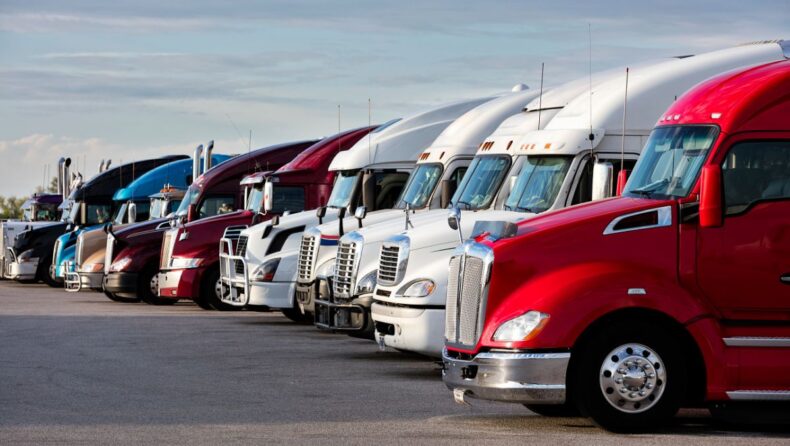Trucking, a profession often romanticized in popular culture, captivates us with its sense of freedom and the allure of the open road. However, beneath this captivating veneer of independence lies a contrasting reality that is far more complex. Truckers face prolonged solitude as they traverse vast distances, their only companionship being the engine’s hum and the passing landscapes.
Yet, amidst this solitude, a profound yearning for meaningful connections persists. This article delves deep into this lesser-known aspect of the trucking circuit, shedding light on the stark realities of loneliness and the unwavering pursuit of human connection that drives these individuals forward.
The Reality of Solitude
The images of open highways and the allure of cross-country journeys shroud the trucking circuit’s reality; intense isolation. Truck drivers spend countless hours alone in their cabs, far from any semblance of community or camaraderie. These extended periods of solitude can instigate feelings of loneliness, often manifesting into acute mental and emotional distress. The lack of regular social interaction and a monotonous routine can strain drivers’ mental well-being, leading to depression and anxiety.
Quest for Connection
In the face of such solitude, truck drivers often seek out connections, both tangible and intangible. The long hours on the road can be isolating, prompting truckers to find ways to bridge the gap. The rise of technology has helped in this regard, allowing them to communicate with their loved ones from thousands of miles away. By regularly engaging in phone calls, video chats, and social media platforms, they can stay connected and share their experiences, providing a sense of companionship despite the physical distance.
But it’s not just digital connections that help alleviate the solitude. Truck stop diners become more than places to grab a meal; they become hubs of interaction and camaraderie. Truckers gather around tables, exchanging stories, advice, and laughter, forming a unique bond that can only be understood by those who share the same lifestyle.
The CB radio, a long-standing tradition in the trucking community, also fosters connections. Truckers banter, share road conditions, and even offer friendly guidance to fellow drivers. It’s a way to break the silence, creating a sense of connection and unity on the open road.
The emergence of Trucking apps has made the roads a more social place. Drivers can use these apps to chat with fellow truckers in real time, creating an online community dedicated to discussing the lifestyle and trade tips on navigating challenging routes. These conversations give drivers a sense of belonging, allowing them to break away from their physical and mental isolation. If you are looking for truck parking for rent near me, a good app might be of great help.
While these connections provide a sense of community, they don’t fully satisfy the innate human need for face-to-face interaction and physical proximity. Truckers long for the warmth of a hug, the comfort of a handshake, and the joy of seeing a familiar face. In their hearts, they know that nothing can replace the genuine connection that comes from being in the same physical space with others.
Impact of Loneliness
The trucking industry’s pervasive loneliness has far-reaching consequences beyond just the drivers’ mental health. It also takes a toll on their physical well-being and overall job performance. Long hours spent on the road, away from family and friends, can lead to a sense of isolation that can harm their health.
Studies have shown that long-term loneliness can increase the risk of severe health conditions like heart disease and weakened immune systems. The lack of social connections and support can lead to chronic stress, negatively impacting the body’s ability to fight illnesses.
The impact of loneliness goes beyond health concerns. It can also have a significant effect on job performance. When drivers feel lonely and isolated, their motivation and focus may suffer, leading to decreased productivity. It, in turn, can have severe implications for road safety, as distracted and fatigued drivers are more prone to accidents.
Recognizing and addressing the issue of loneliness in the trucking industry is crucial. Providing support systems and opportunities for drivers to connect with others can help improve their well-being and overall job satisfaction. It’s not just about the individual drivers but also about creating a safer and more fulfilling work environment for everyone involved.
Final Thoughts
While the trucking industry gives an allure of freedom and independence, the realities of loneliness and the consistent quest for connection paint a different picture. Being on the road for extended periods can affect drivers’ emotional and mental well-being.
Ensuring their overall welfare becomes as crucial as guaranteeing their physical safety. As discussions around mental health become increasingly mainstream, it is essential to address the trucking industry’s solitude aspect and find ways to foster a more connected and supportive environment.
By implementing initiatives that promote regular communication, providing access to support networks, and prioritizing mental health resources, we can work towards creating a trucking community that prioritizes the well-being of its drivers. Together, we can strengthen the industry’s fabric and create a more holistic environment for all involved.













